 W
WAn adulterant is a substance found within other substances such as food, cosmetics, pharmaceuticals, fuel or other chemicals that compromises the safety or effectiveness of said substance.
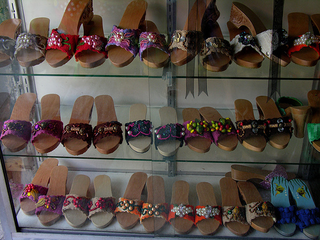 W
WThe Bakyâ or wooden clogs were once the most commonly used footwear in the Philippines before the introduction of rubber sandals. This footwear is made from local light wood like santol and laniti. It is cut to the desired foot size before being shaven until smooth. The side of the bakyâ is thick enough to be carved with floral, geometric or landscape designs, a unique method in Southeast Asia for the artist's application of oneself towards the clog. Afterwards, the bakyâ could then be painted or varnished, traditionally, on the specification of the person who would wear it. Uppers of traditional rattan or tight cloth will then be fastened using clavitos. The finished product has been a symbol of the masses since its popularity. However, since the early 21st century, the usage of the bakyâ has been revived by the upper classes of society, effectively changing the symbolism of the footwear from mass representation to holistic societal representation. A bill in the Philippine Congress described the bakyâ as having 'reference to the Filipinos' humble beginnings'.It has been proposed as the National Slipper of the Philippines since 2014.
 W
WIn political science, the term banana republic describes a politically unstable country with an economy dependent upon the exportation of a limited-resource product, such as bananas or minerals. In 1901, the American author O. Henry coined the term to describe Honduras and neighbouring countries under economic exploitation by U.S. corporations, such as the United Fruit Company. Typically, a banana republic has a society of extremely stratified social classes, usually a large impoverished working class and a ruling class plutocracy, composed of the business, political, and military elites of that society. The ruling class controls the primary sector of the economy by way of the exploitation of labor; thus, the term banana republic is a pejorative descriptor for a servile dictatorship that abets and supports, for kickbacks, the exploitation of large-scale plantation agriculture, especially banana cultivation.
 W
WBeauty Beggar is a derogatory name for beauty bloggers or beauty YouTubers who capitalize their fame to promote cosmetics so as to obtain sponsorship, in forms of testers or money, from cosmetics companies. It is a Hong Kong internet slang that originated from the discussion on Instagram and The Golden Forum
 W
WA blood sport or bloodsport is a category of sport or entertainment that involves bloodshed. Common examples of the former include combat sports such as cockfighting and dog fighting and some forms of hunting and fishing. Activities characterized as blood sports, but involving only human participants, include the Ancient Roman gladiatorial games.
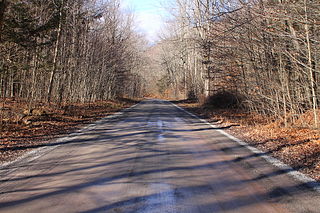 W
WThe boondocks is an American expression from the Tagalog word bundók ("mountain"). It originally referred to a remote rural area, but now, is often applied to an out-of-the-way area considered backward and unsophisticated by city-folk. It can also refer to a mountain.
 W
WA cigarette is a narrow cylinder containing psychoactive material, typically tobacco, that is rolled into thin paper for smoking. Most cigarettes contain a "reconstituted tobacco" product known as "sheet", which consists of "recycled [tobacco] stems, stalks, scraps, collected dust, and floor sweepings", to which are added glue, chemicals and fillers; the product is then sprayed with nicotine that was extracted from the tobacco scraps, and shaped into curls. The cigarette is ignited at one end, causing it to smolder; the resulting smoke is orally inhaled via the opposite end. Most modern cigarettes are filtered, although this does not make them safer. Cigarette manufacturers have described cigarettes as a drug administration system for the delivery of nicotine in acceptable and attractive form. Cigarettes are addictive and cause cancer, chronic obstructive pulmonary disease, heart disease, and other health problems.
 W
WA Chinese home run, also a Chinese homer, Harlem home run, or Pekinese poke, is a derogatory and archaic baseball term for a hit that just barely clears the outfield fence at its closest distance to home plate. It is essentially the shortest home run possible in the ballpark in question, particularly if the park has an atypically short fence to begin with. The term was most commonly used in reference to home runs hit along the right field foul line at the Polo Grounds, home of the New York Giants, where that distance was short even by contemporary standards. When the Giants moved to San Francisco in 1958, the Los Angeles Coliseum, temporary home of the newly relocated Los Angeles Dodgers, gained the same reputation for four seasons until the team took up residence in its permanent home at Dodger Stadium in 1962. Following two seasons of use by the expansion New York Mets in the early 1960s, the Polo Grounds were demolished, and the term gradually dropped out of use.
 W
WChocolate box art originally referred literally to decorations on chocolate boxes. Over the years, however, the terminology has changed; it is now applied broadly as an often pejorative term to describe paintings and designs that are overly idealistic and sentimental.
 W
WClickbait, a form of false advertisement, uses hyperlink text or a thumbnail link that is designed to attract attention and to entice users to follow that link and read, view, or listen to the linked piece of online content, with a defining characteristic of being deceptive, typically sensationalized or misleading. A "teaser" aims to exploit the "curiosity gap", providing just enough information to make readers of news websites curious, but not enough to satisfy their curiosity without clicking through to the linked content. Click-bait headlines add an element of dishonesty, using enticements that do not accurately reflect the content being delivered. The "-bait" part of the term makes an analogy with fishing, where a hook is disguised by an enticement (bait), presenting the impression to the fish that it is a desirable thing to swallow.
 W
WA conspiracy theory is an explanation for an event or situation that invokes a conspiracy by sinister and powerful groups, often political in motivation, when other explanations are more probable. The term has a negative connotation, implying that the appeal to a conspiracy is based on prejudice or insufficient evidence.
 W
WA copyright troll is a party that enforces copyrights it owns for purposes of making money through litigation, in a manner considered unduly aggressive or opportunistic, generally without producing or licensing the works it owns for paid distribution. Critics object to the activity because they believe it does not encourage the production of creative works, but instead makes money through the inequities and unintended consequences of high statutory damages provisions in copyright laws intended to encourage creation of such works.
 W
WCream skimming is a pejorative conceptual metaphor used to refer to the perceived business practice of a company providing a product or a service to only the high-value or low-cost customers of that product or service, while disregarding clients that are less profitable for the company.
 W
WIn English slang, a Croydon facelift is a particular hairstyle worn by some women. The hair is pulled back tightly and tied in a bun or ponytail at the back. The supposed result is that the skin of the forehead and face are pulled up and back, producing the effects of a facelift.
 W
W"Death panel" is a political term that originated during the 2009 debate about federal health care legislation to cover the uninsured in the United States. Sarah Palin, former Republican Governor of Alaska and Vice Presidential Candidate in 2008, coined the term when she charged that proposed legislation would create a "death panel" of bureaucrats who would carry out triage, i.e. decide whether Americans—such as her elderly parents, or children with Down syndrome—were "worthy of medical care". Palin's claim has been referred to as the "death panel myth", as nothing in any proposed legislation would have led to individuals being judged to see if they were worthy of health care.
 W
WDisease mongering is a term for the practice of widening the diagnostic boundaries of illnesses and aggressively promoting their public awareness in order to expand the markets for treatment. Among the entities benefiting from selling and delivering treatments are pharmaceutical companies, physicians, alternative practitioners and other professional or consumer organizations. It is distinct from the promulgation of bogus or unrecognised diagnoses.
 W
WThe dump months are what the film community calls the two periods of the year when there are lowered commercial and critical expectations for most new releases from American filmmakers and distributors. Domestic audiences during these periods are smaller than the rest of the year, so no tentpole movies are released. January and February are usually most commonly described this way, with August and September sometimes included. Releases during those times primarily include films that would have been released at other times of year had they done better at test screenings, films with less prominent stars, genre films, movies that cannot be easily marketed and films intended for a teenage audience, which has fewer entertainment options outside the home.
 W
WThe "Evil Empire" speech was a speech delivered by U.S. President Ronald Reagan to the National Association of Evangelicals in 1983 during the Cold War. In that speech, Reagan referred to the Soviet Union as an "evil empire" and as "the focus of evil in the modern world". Reagan explicitly rejected the notion that the United States and the Soviet Union were equally responsible for the Cold War and the ongoing nuclear arms race between the two nations; rather, he asserted that the conflict was a battle between good and evil.
 W
WFlyover country and flyover states are American phrases describing the parts of the United States between the East and the West Coasts. The terms, which are often used pejoratively, but sometimes used defensively, refer to the interior regions of the country passed over during transcontinental flights, particularly flights between the nation's two most populous urban agglomerations: the Northeastern Megalopolis and Southern California. The term is also sometimes used more broadly to describe flights between all the heavily urbanized megaregions of the United States. The term is often used in reference to the general economic, developmental, cultural, and political differences between the urban coastal and rural central regions of the United States. "Flyover country" thus refers to the part of the country that some Americans—especially urban, wealthier, white-collar Americans—only view by air when traveling and never actually see in person at ground level.
 W
WHomosexual agenda is a term introduced by sectors of the Christian religious right as a disparaging way to describe the advocacy of cultural acceptance and normalization of non-heterosexual orientations and relationships. The term refers to efforts to change government policies and laws on LGBT rights-related issues. Additionally, it has been used by social conservatives and others to describe alleged goals of LGBT rights activists, such as recruiting heterosexuals into what conservatives term a "homosexual lifestyle".
 W
WThe Great Satan is a demonizing epithet for the United States of America in Iranian foreign policy statements. Occasionally, these words have also been used toward the government of the United Kingdom.
 W
WHeresy is any belief or theory that is strongly at variance with established beliefs or customs, in particular the accepted beliefs of a church or religious organization. The term is usually used in reference to violations of important religious teachings, but is also used of views strongly opposed to any generally accepted ideas. A heretic is a proponent of heresy.
 W
WFlavored fortified wines are inexpensive fortified wines that typically have an alcohol content between 13% and 20% alcohol by volume (ABV). They are usually made of grape, fruit, and citrus, with added sugar, artificial flavor and artificial color.
 W
WHomosexual agenda is a term introduced by sectors of the Christian religious right as a disparaging way to describe the advocacy of cultural acceptance and normalization of non-heterosexual orientations and relationships. The term refers to efforts to change government policies and laws on LGBT rights-related issues. Additionally, it has been used by social conservatives and others to describe alleged goals of LGBT rights activists, such as recruiting heterosexuals into what conservatives term a "homosexual lifestyle".
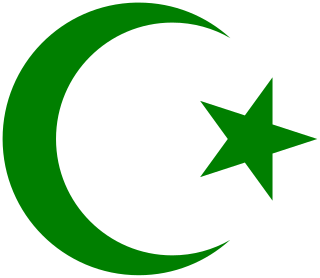 W
W"Islamic fascism", also known since 1990 as "Islamofascism", is a term drawing an analogy between the ideological characteristics of specific Islamist movements and a broad range of European fascist movements of the early 20th century, neofascist movements, or totalitarianism.
 W
WJiggle television is a term coined by NBC executive Paul Klein to criticize ABC's television production and marketing strategy under Fred Silverman.
 W
WJunk food is unhealthful food that is high in calories from sugar or fat, with little dietary fiber, protein, vitamins, minerals, or other important forms of nutritional value.
 W
WA kangaroo court is a court that ignores recognized standards of law or justice and often carries little or no official standing in the territory within which it resides. A kangaroo court may ignore due process and come to a predetermined conclusion. The term may also apply to a court held by a legitimate judicial authority which intentionally disregards the court's legal or ethical obligations.
 W
WKing Andrew the First is a famous American political cartoon created by an unknown artist around 1832. The cartoon depicts Andrew Jackson, the 7th United States president, as a monarch holding a veto bill and trampling on the Constitution and on internal improvements of the national bank.
 W
WMansplaining is a pejorative term meaning "(of a man) to comment on or explain something to a woman in a condescending, overconfident, and often inaccurate or oversimplified manner". Author Rebecca Solnit ascribed the phenomenon to a combination of "overconfidence and cluelessness". Lily Rothman, of The Atlantic, defined it as "explaining without regard to the fact that the explainee knows more than the explainer, often done by a man to a woman".
 W
WIn suburban communities, McMansion is a pejorative term for a large "mass-produced" dwelling. Virginia Savage McAlester, who also gave a first description of the common features which define this building style, coined the more neutral term Millennium Mansion.
 W
WMickey Mouse is a cartoon character created in 1928 at Walt Disney Animation Studios who serves as the mascot of Disney. An anthropomorphic mouse who typically wears red shorts, large yellow shoes, and white gloves, Mickey is one of the world's most recognizable fictional characters.
 W
WMilo tin is a Malaysian pejorative used to describe unsafe or cheaply made vehicles. It is comparable to the slang term, 'deathtrap'.
 W
WName-calling is a form of verbal abuse in which insulting or demeaning labels are directed at an individual or group. This phenomenon is studied by a variety of academic disciplines such as anthropology, child psychology, and political science. It is also studied by rhetoricians, and a variety of other disciplines that study propaganda techniques and their causes and effects. The technique is most frequently employed within political discourse and school systems, in an attempt to negatively impact their opponent.
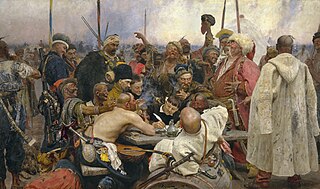 W
WKhokhol or oseledets is the stereotypical Ukrainian cossack style of haircut that features a long lock of hair left on the otherwise completely shaved head, commonly sprouting from the top or the front of an otherwise closely shaven head. It is commonly used as an ethnic slur for Ukrainians.
 W
WA pastiche is a work of visual art, literature, theatre, or music that imitates the style or character of the work of one or more other artists. Unlike parody, pastiche celebrates, rather than mocks, the work it imitates.
 W
WPink slime is a meat by-product used as a food additive to ground beef and beef-based processed meats, as a filler, or to reduce the overall fat content of ground beef. In the production process, heat and centrifuges remove fat from the meat in beef trimmings. The resulting paste is exposed to ammonia gas or citric acid to kill bacteria. In 2001, the United States Department of Agriculture (USDA) approved the product for limited human consumption. LFTB prepared using ammonia gas is banned for human consumption in the European Union.
 W
WPork barrel is a metaphor for the appropriation of government spending for localized projects secured solely or primarily to bring money to a representative's district. The usage originated in American English. Scholars use it as a technical term regarding legislative control of local appropriations. In election campaigns, the term is used in derogatory fashion to attack opponents. One of the most explicit definitions of the “pork barrel” is given by Sharma (2017): “The term “pork‐barrel politics” refers to instances in which ruling parties channel public money to particular constituencies based on political considerations, at the expense of broader public interests”.
 W
WQuackery, often synonymous with health fraud, is the promotion of fraudulent or ignorant medical practices. A quack is a "fraudulent or ignorant pretender to medical skill" or "a person who pretends, professionally or publicly, to have skill, knowledge, qualification or credentials they do not possess; a charlatan or snake oil salesman". The term quack is a clipped form of the archaic term quacksalver, from Dutch: kwakzalver a "hawker of salve". In the Middle Ages the term quack meant "shouting". The quacksalvers sold their wares on the market shouting in a loud voice.
 W
WRice burner is a pejorative term originally applied to Japanese motorcycles and which later expanded to include Japanese cars or any East Asian-made vehicles. Variations include rice rocket, referring most often to Japanese superbikes, rice machine, rice grinder or simply ricer.
 W
W"Sick man of Europe" is a label given to a nation which is located in some part of Europe and experiencing a time of economic difficulty or impoverishment. The term was first used in the mid-19th century to describe the Ottoman Empire, and after the dissolution of the Ottoman Empire in the early 20th century, the term has been applied to European nations such as the United Kingdom or Germany.
 W
W"Sunday school answer" is a pejorative used within Evangelical Christianity to refer to an answer as being the kind of answer one might give to a child. The phrase derives its name from the concept that certain answers are likely to be an appropriate answer to a question asked in a Sunday school even if one has not heard the question. These answers include Jesus, sin, and the cross.
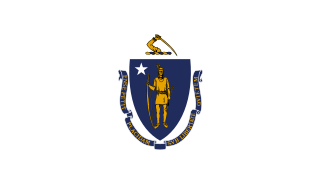 W
WMassachusetts, officially known as the Commonwealth of Massachusetts, is the most populous state in the New England region of the northeastern United States. It borders on the Atlantic Ocean to the east, the states of Connecticut and Rhode Island to the south, New Hampshire and Vermont to the north, and New York to the west. The capital of Massachusetts is Boston, which is also the most populous city in New England. It is home to the Greater Boston metropolitan area, a region influential upon American history, academia, and industry. Originally dependent on agriculture, fishing and trade, Massachusetts was transformed into a manufacturing center during the Industrial Revolution. During the 20th century, Massachusetts's economy shifted from manufacturing to services. Modern Massachusetts is a global leader in biotechnology, engineering, higher education, finance, and maritime trade.
 W
WInternet censorship is the control or suppression of what can be accessed, published, or viewed on the Internet enacted by regulators, or on their own initiative. Individuals and organizations may engage in self-censorship for moral, religious, or business reasons, to conform to societal norms, due to intimidation, or out of fear of legal or other consequences.
 W
WA tin foil hat is a hat made from one or more sheets of aluminium foil, or a piece of conventional headgear lined with foil, often worn in the belief or hope that it shields the brain from threats such as electromagnetic fields, mind control, and mind reading. The notion of wearing homemade headgear for such protection has become a popular stereotype and byword for paranoia, persecutory delusions, and belief in pseudoscience and conspiracy theories.